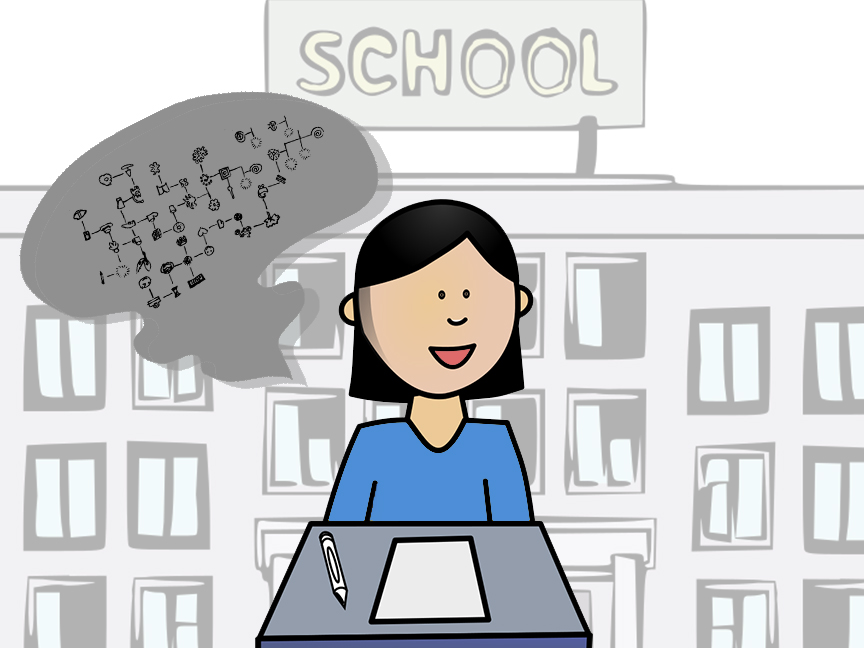OPINION: Schools should encourage student creativity
Students need to be creative; schools need to encourage them
It’s important for students to have an outlet to express their creativity.
October 27, 2020
It’s tough to put into words exactly what students are getting from their education right now.
Of course, there is still the course material, the opportunity to learn new things, etc.
But what about the connections with other people? What about the learning experience of speaking up in class and interacting with the materials?
Some of this cannot be helped — must I say again that we are in a pandemic? Yet, we have to admit that Zoom breakout rooms are not doing much for students’ connection to their classes.
This is only the latest failure of our education system in terms of encouraging creativity in students of all grades. One WSU professor is making a point of crushing the norm of preparing students only for careers.
In addition to their future jobs, Margaret Ritsch, assistant communications professor, said she is preparing them for life.
“Creativity, believe it or not, is actually one of the top three skills that employers are looking for in the strategic communication and public relations area,” Ritsch said.
In her Media Strategies and Techniques class, students make a blog about whatever topic they want and work on it throughout the semester.
This activity may seem like busywork, but in reality, it is allowing students to dive into something they are already passionate about while learning how to bring creativity into their career.
Some students have fashion-focused blogs, others are sharing their experiences with the foster care system or chronic illness.
“There’s some really great work going on in my classes, and I’m really very excited about it,” Ritsch said. “I’m really gratified to be able to see or sense that these students are actually enjoying doing this work.”
Zachary Settle, junior public relations major, focused his blog around his music. He has been creating music since he was in high school.
“I just think it’s cool that professors are giving students the freedom to write about whatever they want and still get good grades,” he said.
It’s also important to practice — creativity isn’t enough on its own.
“[At first] I knew my music wasn’t very good,” Settle said. “I tried to make it good, but I was also so determined, knowing that if I just kept doing it, it would eventually get good.”
Artists like Settle should be able to bring their experience, talent and passion into the classroom. His determination to dive into his creative side is not one many students have had a chance to explore.
Giving students these opportunities to connect with their creativity and passions is vital for our education. We have to be able to use these personal experiences to relate the knowledge we obtain through school to really enjoy life.
“I think more people need to capitalize on doing what they like because you spend a third of your life sleeping, you spend another third working, and basically that last third is the free time of your actual life,” Settle said. “So we may live to be 80 years old, but we really only lived to be 25 if we grow up, go to school and then hate our job.”
It’s not only vital for our students’ educations that we incorporate creativity into the curriculum. Teachers are continuing to learn from these lessons, too.
Ritsch spoke to her own experience with these blogs, sharing how grateful she is to be able to get to know her students even through this online platform.
“I feel like I’m really getting to know them, and I’m not sure if, in an in-person class, it would have happened this way,” Ritsch said.
Incorporating more creative approaches to our education can only help us. Particularly during times of disconnection, projects like this blog are ways for us to continue to get to know one another.
“Music is kind of like a book on a shelf,” Settle said. “You don’t have to listen to it. No one is telling you to go up, grab the book, open it and read it. No one is forcing you to do it.”
Our education system works in the same way, except there are so many metaphorical books on shelves we cannot reach without creativity. There are many topics we have yet to discover because of this lack in the system.
With teachers like professor Ritsch and enthusiastic and passionate students like Settle, I believe this will begin to change. In the meantime, go find ways to be creative in your classes. Connect with people you might never have thought to reach out to before.









